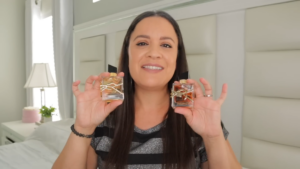Hair thinning is a common issue affecting both men and women, often leading to emotional distress and a loss of confidence. Understanding the underlying causes and discovering effective remedies is crucial for those experiencing this problem. From genetics to lifestyle factors, hair thinning can be triggered by various reasons, each requiring a specific approach for treatment. This article delves into the causes of hair thinning and provides practical solutions that can help restore hair health and volume.
What Causes Hair Thinning?
Hair thinning can be attributed to a variety of factors, ranging from genetics to environmental stressors. Genetics play a significant role in determining hair density and health, with conditions like androgenetic alopecia being a common hereditary cause. Additionally, hormonal imbalances, especially in women, can lead to thinning hair. Environmental factors such as pollution, sun exposure, and chemical treatments can further exacerbate hair thinning by damaging the hair shaft and follicles.
Nutritional deficiencies also contribute to hair thinning, as a lack of essential vitamins and minerals weakens hair structure. Stress, a major modern-day health issue, can trigger hair thinning by pushing hair follicles into a resting phase, leading to increased shedding. Understanding these causes is the first step in addressing hair thinning effectively, allowing for targeted treatments and lifestyle adjustments.
Effective Remedies for Hair Thinning
Addressing hair thinning requires a multifaceted approach, combining lifestyle changes with targeted treatments. Ensuring a balanced diet rich in vitamins and minerals, such as biotin, zinc, and iron, can significantly improve hair health. Regular scalp massages stimulate blood circulation, promoting hair growth and strength. Additionally, over-the-counter topical treatments like minoxidil have shown effectiveness in slowing down hair thinning and promoting regrowth.
Reducing stress through mindfulness practices such as yoga or meditation can also help in combating hair thinning. For those experiencing severe thinning, professional treatments like platelet-rich plasma (PRP) therapy or hair transplants may be considered. These remedies offer a range of options, enabling individuals to choose a method that best suits their needs and lifestyle.
1. Nutritional Support for Hair Health
A diet rich in essential nutrients plays a crucial role in maintaining healthy hair. Vitamins such as biotin and vitamin D are vital for hair growth and strength. Consuming foods rich in these nutrients, such as eggs, nuts, and leafy greens, can provide the necessary support for hair health. Additionally, adequate protein intake is essential, as hair is primarily made up of keratin, a protein that requires a steady supply of amino acids to maintain its structure and resilience.
Supplementation may be necessary for individuals who cannot meet their nutritional needs through diet alone. Taking a daily multivitamin or specific supplements like biotin and omega-3 fatty acids can help address deficiencies and promote hair growth. Consulting with a healthcare professional can ensure that the supplementation plan is tailored to individual needs, providing the best results for hair health.
2. Topical Treatments and Scalp Care
Topical treatments, such as minoxidil, have become a popular choice for those experiencing hair thinning. These treatments work by stimulating hair follicles, encouraging growth and reducing the rate of thinning. Regular application, as directed by a healthcare provider, can lead to noticeable improvements in hair density and volume. Additionally, incorporating gentle scalp care practices, such as regular cleansing with mild shampoos and avoiding harsh chemicals, can protect the scalp environment, promoting healthy hair growth.
Scalp massages are another effective method to enhance blood circulation and nutrient delivery to the hair follicles. Using essential oils like rosemary or peppermint during massages can further boost hair growth. Consistency in these practices is key, as long-term care can lead to substantial improvements in hair thickness and overall health.
Restoring Confidence through Effective Hair Thinning Remedies
Understanding the causes of hair thinning is essential for finding the right remedies to restore hair health and volume. By addressing factors like nutrition, stress, and scalp care, individuals can take proactive steps to combat hair thinning. A combination of dietary changes, topical treatments, and professional interventions offers a comprehensive approach to managing hair thinning. With the right strategies in place, it is possible to regain not just hair density, but also confidence and self-esteem, helping individuals feel more comfortable and assured in their appearance.








